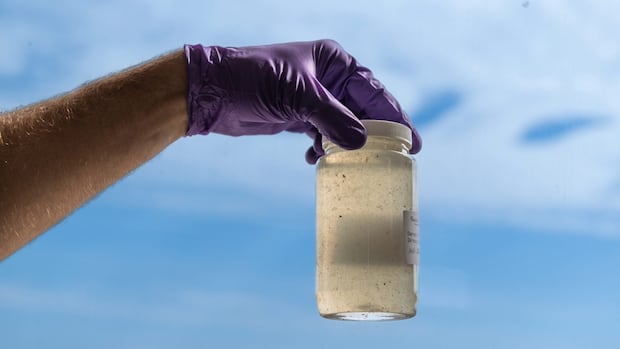
How Canada may promote the monitoring of the disease for US health cuts
Canada must do more to strengthen its health monitoring systems as cuts in US health institutions are threatened by access to significant monitoring data, experts say Editorial This week published in Canadian Medical Association Journal (CMAJ).
The editorial says that the cut within the US Center for Disease Control (CDC), the National Institute of Health and Federal Department of Health and Human Services can take away the valuable health data of Canada and other countries.
A family doctor and co-writer of CMAJ’s medical editor, Dr. Shannon Charlebis said, “We have a decades related to disease control and other organizations in the states.” “As they are disintegrating, we are not going to our initial warning systems.”
For example, when the MPOx virus broke in the US, Charlebois said that the CDC formally informed the Canadian Public Health Agency.
It comes, authors say, “The crisis of communicable diseases in North America is coming out,” pointing to the increasing rates of syphilis and HIV in Canada, due to measles infestation and livestock due to avian influenza.
“We can not clearly control everything happening in the US, but we can improve our own system,” Public Health and Preventive Medical Physicians at the University of Toronto, Dalla Lana at the University of Toronto. Jasmine Pav said.

US cuts should ‘light a fire’ to work on monitoring
Long -term calls have been made to Canada to improve monitoring of infectious diseases.
“It should really lighten a fire under policy makers to take this question of public health monitoring very seriously,” Dr. Lorian Hardcasal said, the Associate Professor in the Faculty of Law and Coming School of Medicine at the University of Calgary who specializes in health law and policy.
He said what America does in public health.
“When you have this major world player pulling out of public health surveillance and is no longer rebuilding public health in the way they have done historically, others have a call to pursue their game.”
Beyond the formal warning, Charlebo said that there are also informal relations between the two countries that can help in planning. But with cutting and budget cuts, now “we don’t know who to call that informal information,” he in an interview with CBC Radio All in a day.
Earlier this month, US Health and Human Services Secretary Robert F. Kennedy Junior announced thousands of job cuts at CDC, FDA and National Institute of Health. Yukon doctors are now saying that these cuts leave the area weak.
What can be done here
In Canada, one of the major obstacles for growing monitoring, the province and the region, on time, are getting provinces and regions to collaborate and share data in a similar way, Hardcassal said.
He said, “There is a need for political will power to do so much, which is a big challenge.”
But he said that there are also devices that can apply Canada, including electronic medical records, and better waste water monitoring for antimicrobial resistance.
Hardcasal said that such a monitoring was done during the Kovid -19 epidemic and it could be beneficial for public health not only for monitoring infectious disease.
This will give policy makers a initial warning of problems, said, “Instead of waiting for things for snowball.”
Others, such as Charlebois, are calling for a national vaccine registry, so patients and medical professional can keep an eye on vaccination and pinpoints that are preserved and which is at risk.
“We do not have a national vaccine registry and we are not fulfilling our responsibilities for the World Health Organization on it,” Charlebois said.
Cross information also crosses limits
CMAJ editorial said that all this is complicated by another concern: misinformation.
The authors wrote, “People living in Canada are insecure not only for a border-limit for microorganisms, but also in touch with the approach, health misinformation and biased American media.”
The misinformation can further challenge the health system, infectious disease doctor Dr. The Michael Guard said, who has reduced efforts to control the spread of diseases like measles like measles.
The guard said, “People have stopped following highly effective control measures. Why have they stopped? Because people are telling them through social media not to follow them anymore.”
With a change in health institutions in the US, the guard said that there would be a zero to fill Canada and other countries, but it would take time and effort.
“We did not build our surveillance because we had back in America,” he said. “If they no longer have your back, you have to make it yourself or you have to create a new partnership with other countries to do it.”
Quirks and Quarks54:00Scientific Sovereignty – How Canadian scientists are confronting us with cuts and chaos
